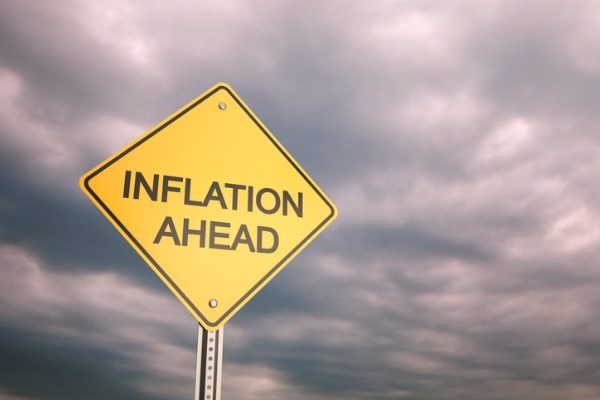What inflation? Most rich people not fazed by surge in prices
17th September 2021 13:35
by Alex Sebastian from interactive investor
New research has found a surprisingly relaxed attitude to inflation among wealthy individuals, despite potentially harmful effects.

Over half of high-net-worth individuals (HNWIs) questioned about their views on inflation said they are not worried about its effect on their finances.
Research by YouGov and Canaccord Genuity Wealth Management collecting the views of 1,006 HNWIs, found that 55% are unconcerned about rising prices.
This is despite inflation running above the Bank of England’s target of 2% and claims that it is merely ‘transitory’ running out of time to be proved correct.
For the purposes of the research, HNWIs were defined as those with £750,000 or more in savings and assets, excluding their main home.
The research also found some difference between the views of wealthy men and women.
- Take control of your retirement planning with our award-winning, low-cost Self-Invested Personal Pension (SIPP)
- Visit the ii Knowledge Centre for a wide range of investor education content
- ii Super 60 investments: quality options for your portfolio, rigorously selected by our impartial experts
For male HNWIs, inflation is perceived as the biggest threat to their financial well-being (32%), ahead of market volatility (26%) and tax rises (22%).
This compares to female HNWIs who are more worried about market volatility (36%), compared to inflation (19%) and tax hikes (18%).
Another indicator that HNWIs might be underestimating the impact of inflation is that they seem to overestimate the value of cash over a 10-year period.
When asked how much £1,000 put in a savings account 10 years ago would be worth in today’s money, the average estimate was £1,404. Women estimated £1,336 and men £1,470. In fact, the real value is just £878.
HNWIs have accrued significant pots of cash during the pandemic, which in many cases will be losing value in real terms.
The attitudes of many of the HNWI’s quizzed potentially points to the fact that the wealthier you are, the less you feel the impact of inflation because you never struggle to buy the things you need.
However, it is actually HNWIs who are the most impacted in purely monetary terms, because the more money you have sat in cash the bigger the real terms losses inflation can create.
- Will ‘transitory’ inflation start to be worryingly persistent soon?
- The inflation-proof shares fund managers are backing
- Ian Cowie: four inflation-beating trusts yielding 4.5% or more
YouGov found a quarter (23%) have saved more than £20,000 since the start of the Covid crisis, while 15% have saved between £20,000 and £50,000, and 8% have put away over £50,000. Only 41% of those questioned are planning to spend it.
Commenting on the research, David Goodfellow, head of wealth planning at Canaccord Genuity Wealth Management said: “The simple rule of economics dictates if interest rates are lower than inflation, inflation will erode the real value of your cash savings over time.”
“If savers have surplus cash holdings, then they are likely to be better off investing at least a proportion in a diversified portfolio.”
He added: “Recent research by Goldman Sachs showed 10-year stock market returns have averaged 9.2% in the past 140 years. Compare this to a real return on cash. If you had £1,000 in a bank account for the last 10 years, this would be worth just £877 today in real terms - a loss of 12%.”
These articles are provided for information purposes only. Occasionally, an opinion about whether to buy or sell a specific investment may be provided by third parties. The content is not intended to be a personal recommendation to buy or sell any financial instrument or product, or to adopt any investment strategy as it is not provided based on an assessment of your investing knowledge and experience, your financial situation or your investment objectives. The value of your investments, and the income derived from them, may go down as well as up. You may not get back all the money that you invest. The investments referred to in this article may not be suitable for all investors, and if in doubt, an investor should seek advice from a qualified investment adviser.
Full performance can be found on the company or index summary page on the interactive investor website. Simply click on the company's or index name highlighted in the article.